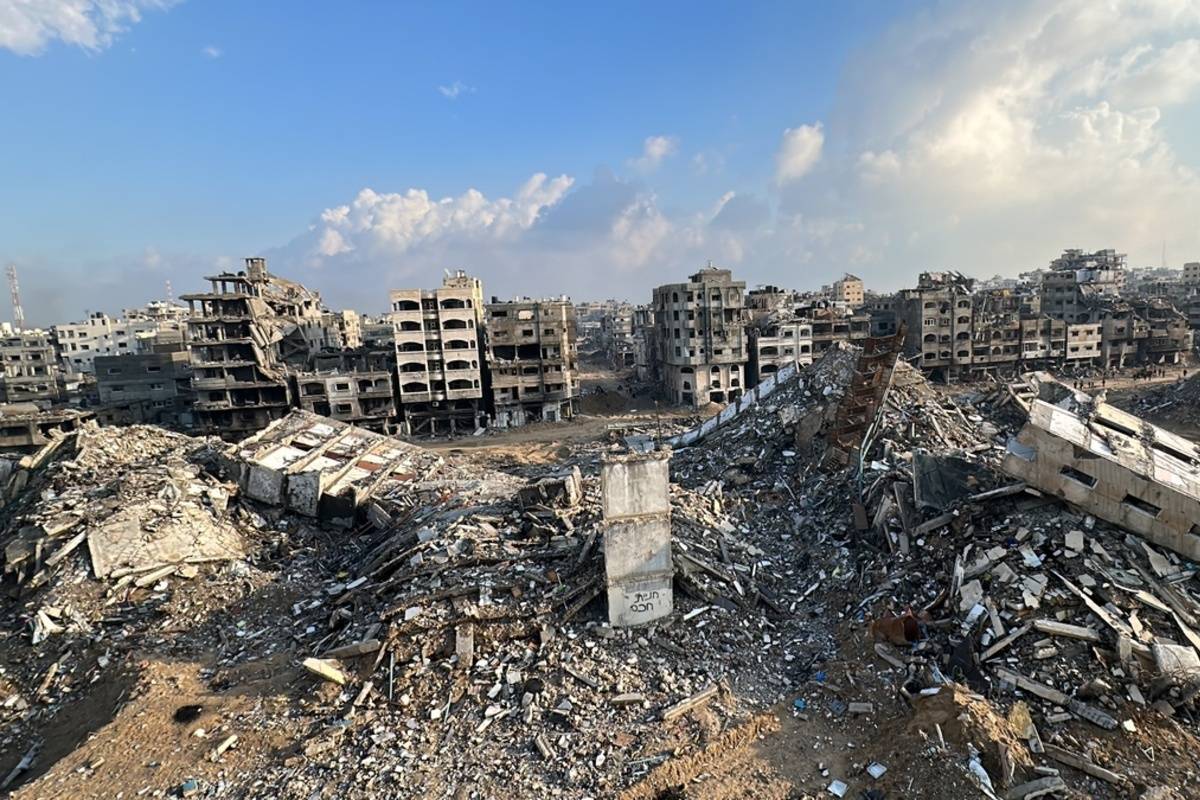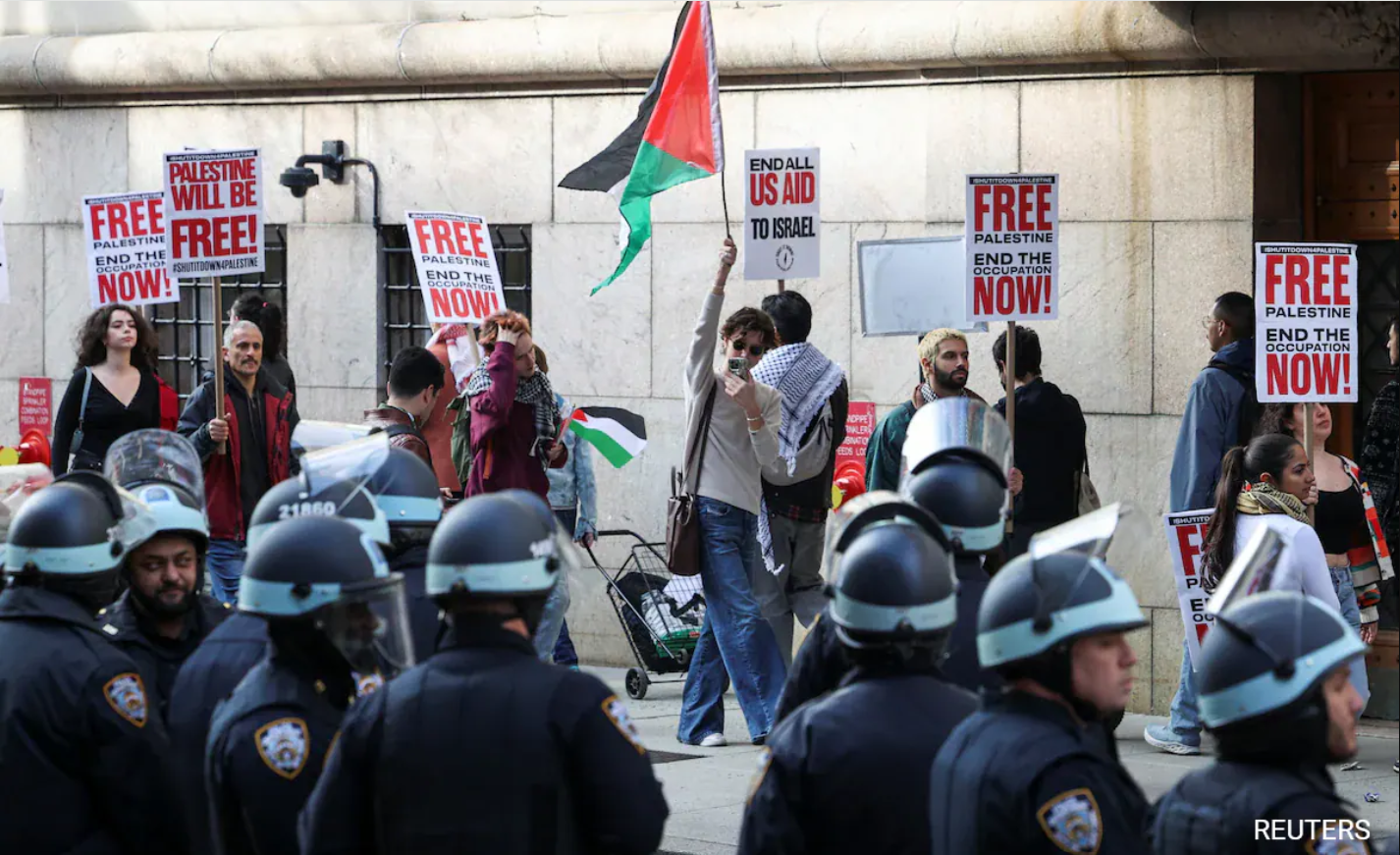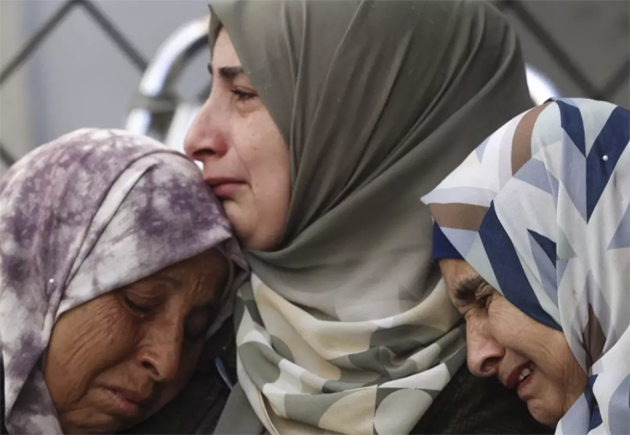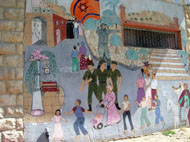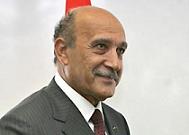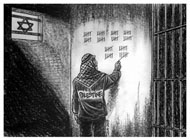“There are many operations against the Qassam attacks, but there is no way to put an absolute end to the terrorism in a single blow or a single air attack”. This was the message relayed by Israeli Prime Minister Ehud Olmert on the plane as he traveled to Germany for talks with Chancellor Angela Merkel. The prime minister’s comments were in response to growing frustration and calls for action against the Gaza Strip following the suicide bombing which killed one Israeli woman in Dimona on February 4 and the injury of two brothers in Sderot, wounded by one of eleven Qassam rockets fired by Islamic Jihad and the Popular Resistance Committee on February 10.
Amidst vocal attacks from ministers and the public urging Olmert to respond, the head of Kadima was almost too composed when he expressed his sentiments, stating simply that “anger is not an operational plan”. How will the public construe these remarks? Will the discontented public be satisfied, focusing on Olmert showing signs of a sensible leader, not wishing to rush into a scenario that could exacerbate Israel’s position? Will they demand retribution? Or, is the prime minister, with his recent exoneration by the Winograd report, quietly pleased with the state of affairs?
There are three options available to Olmert in his stance towards Hamas and the Gaza Strip. The first is simple – agree to a hudna [ceasefire] with Hamas. The group has been advocating a ten-year hudna and, according to Ma’an News agency, an initiative has now been reportedly drawn up to make this a reality. Israel would end the blockade while Hamas would halt rocket attacks on Israel. However, there are many variables dependent on Israeli public opinion, Hamas’ ability to actually cease the attacks by political groups and the precondition that President Abbas agrees to the initiative. If viable, will a short term peace not merely delay Israeli security concerns rather than put them to rest?
The second involves Olmert adhering to a policy of provocation leading to affirmative action and the third, a strategy of division to maintain Israeli supremacy on the ground.
The second option would entail Olmert provoking Hamas to increase their assaults on Israel thus providing the ammunition to justify a military incursion into Gaza and therefore ostensibly ensure Israeli security. Olmert’s words, in this respect, could be a subtle warning of intention to the Israeli public and Hamas – be patient because a response is imminent.
There has been a vast array of differing reactions from various members of the Israeli elite with regard to the future treatment of Hamas in Gaza. Interior Minister Shimon Sheetrit believes that Israel should advance into Gaza “without asking who [those responsible for rocket attacks] they are”. President Peres has announced that “if fired upon we must hit back without hesitation and without compromise” while all share the opinion of Foreign Minister Tzipi Livni who stresses Israel’s “right and duty to defend its citizens”.
Prime Minister Olmert and Defense Minister Barak cannot ignore these comments. Olmert declared that there would be no broad military operation in Gaza as it is an issue that “takes time” to resolve. While the chief of staff for the Israeli Army, Gabi Ashkenazi, confirms that the army is ready for such an operation, Barak emphasizes that “it will happen at the right moment”.
After all, it is imperative to the Israeli public that Sderot, although a small town in southern Israel, is not neglected. Sderot is perceived as a microcosm of Israel and, according to resident Eeki Elner, the ultimate litmus test for Olmert to demonstrate his aptitude in addressing existential threats to the Zionist vision. Sderot is 99.8% Jewish and the place which has been affected the most by rockets from Gaza. 20% of the population has left since 2000 and 20-30% of businesses have closed down as a result of these attacks. Sderot is therefore highly symbolic for the Israeli people. If the Zionist vision, epitomized by Sderot collapses, what trust can be left in the government?
The burning of tires at an intersection in Sderot on February 9 and the protests of over 150 Sderot residents in Tel Aviv and Jerusalem at the Ministry of Defense and the prime minister’s home in Jerusalem on February 10 and 11 will surely be taken seriously.
Olmert has been criticized for flying to Germany during such pressing domestic problems but it is interesting to note that over the next month Olmert has no plans to meet with President Abbas over peace. Instead, his itinerary is geared towards meeting international leaders. Could Olmert be gathering a consensus on what Hamas has to do before the international community is convinced that an invasion of Gaza is appropriate?
The third theory mentioned earlier is that of dividing the Palestinians in order to cement Israeli supremacy on the ground.
With Hamas portrayed as uncooperative in Gaza, Olmert, in his supposed pursuit of peace can “reluctantly” delay the peace process indefinitely, backed by the fact that he has authorization and legitimacy to do so. With the international community aware of Qassam rocket attacks, they will concur with the analysis of Israeli Foreign Minister Tzipi Livni who stipulates that there can be no talk of peace while Israel’s security is threatened by rockets from Gaza. By suspending the peace process, Olmert also manages to cling to Eli Yishai [who threatened to leave the coalition if peace discussions continue while Israeli security is in jeopardy] and the 12 coalition seats Shas has in the Knesset and thus preserve the survival of his majority. Meanwhile, President Abbas is in Ramallah with his hands tied, reduced to a spectator. The president is unable to talk to Hamas fearing an Israeli backlash and when he does, Abbas issues the same conditions to Hamas concerning Gaza – surrender the coup of June 2007 and dialogue can be established. Hamas rejects his proposal favoring a meeting with an unconditional premise.
A contained Hamas and a divided Palestinian people suits Olmert very well. The prime minister may advertise under the banner and pretext of a final peace, but in reality unleashing Hamas could prove extremely damaging for Israel. Israel, as the occupying power in the peace process, enjoys greater bargaining power than their Palestinian counterparts, a fact that may depict the PA as systematically dysfunctional and impressionable in the eyes of the public. As a result, Palestinians may be drawn to the cohesion and urgency of Hamas, a group that has demonstrated their military and political prowess. Additionally, as Hamas accumulate the most marginal of political victories against Israel, they may grow in reputation and respect as the group championing Palestinian liberation, persevering with their resistance against Israeli occupation even when conditions look to be overwhelmingly working against them.
Support for Hamas, while being somewhat of an unknown in the West Bank is substantial in Gaza. Testament to this is the unwavering solidarity with the Islamic group despite the flurry of economic sanctions and Israeli air strikes. Recognizing his inability to suppress Hamas thus far [the Israeli government has massively decreased vital supplies into Gaza to the point where the international community can no longer idly stand by] and fearing that a land incursion into Gaza may be too costly to Israel, Olmert may choose a direction that allows for the cat and mouse game to go on.
In any event, the rockets fired into Israel from Gaza by politically affiliated Palestinian groups have killed 12 Israelis in six years. What is more important to Olmert? One route involves a highly perilous invasion into Gaza [which could attract the attention of Hezbollah in the north]. If this motion is not endorsed by the international community, not only will it risk the lives of Israelis [80 according to the staged mock invasion] but it would usher in a united Palestinian front, invariably strengthen the probability of peace and disturb Israel’s attempts to curb Palestinian independence. Alternatively, by having the psychological damage of 22,000 working class Israeli citizens in Sderot clouding his conscience, Olmert could isolate Hamas, stall the peace process and keep Palestinians divided while creating conditions on the ground that make peace even more impossible in the future. Under this strategy, Olmert can promise that Israel will continue their sporadic assaults, which have killed over 150 activists in less than three months and harden their restrictions on vital supplies, a move devastating to Gaza while highly advantageous to Israel.
Olmert may even claim to target “Hamas leaders”. Although it sounds like a serious response, in reality it is purely empty rhetoric. In 2004 Israel assassinated Hamas founder Sheik Yassin and managed to eliminate his successor, fellow Hamas cofounder Abdel Aziz al-Rantissi. This did nothing to cripple Hamas. If anything, it bolstered the group, their credibility and the publicity consolidated their support. Israel should have realized this post-1972 when Prime Minister Golda Meir embarked on “Operation Spring of Youth” and “Operation Wrath of God”. These actions, according to Meir, aimed “to save our citizens and condemn the unspeakable criminal acts committed”. Meir was referring to the murder of eleven Israeli athletes by Palestinian activists during the Munich Olympic Games. Over the next few years Israel targeted the individuals thought to be responsible for the atrocity. However, while the operations were a success by Israeli standards, in that they killed influential players, [Defense Minister Barak could attest to this being the leader of the “Spring of Youth” operation in Beirut in April 1973] they failed to quell the PLO resistance. Once one was terminated, another rose to the forefront, more determined and more revered. If anything, Israeli assassinations have greatly hindered the quest to destroy a movement.
At this stage, it is extremely difficult to associate Olmert with any of the methods above, although there is sufficient motive for all. In either scenario, the question must be posed; can Olmert prevent the inevitable?
If Olmert’s plan is to seek international endorsement and edge towards an invasion of Gaza to remove Hamas, and if the aforementioned invasion resembles another Second Lebanese War, claiming many Israeli lives without extinguishing the threat of rocket attacks on Israel, what will that signify for the peace process, Israel’s relations with the international community and the future of the Israeli state as a whole? If it is successful, will Olmert be compelled to stop stalling and make serious advancements in the peace process?
If Olmert adopts a policy of postponement, aiming to tempt the Israeli public with promises of “intensifying” attacks on Gaza and asserting the unpredictability of an invasion which also lacks international legitimacy, therefore disguising his reservations in being able to repel the threat, then how long can he stick to this path? What happens if a rocket kills a resident of Sderot?
Either way, Olmert is correct in one respect. A rash, unsubstantiated and unsanctioned invasion of Gaza is categorically wrong. What is expected is a response significant enough to satisfy the Israeli people, while at the same time not being too firm as to risk his future as well as the future of Israel. Olmert, taking all factors into consideration, must decide what form this prospective response should take.





